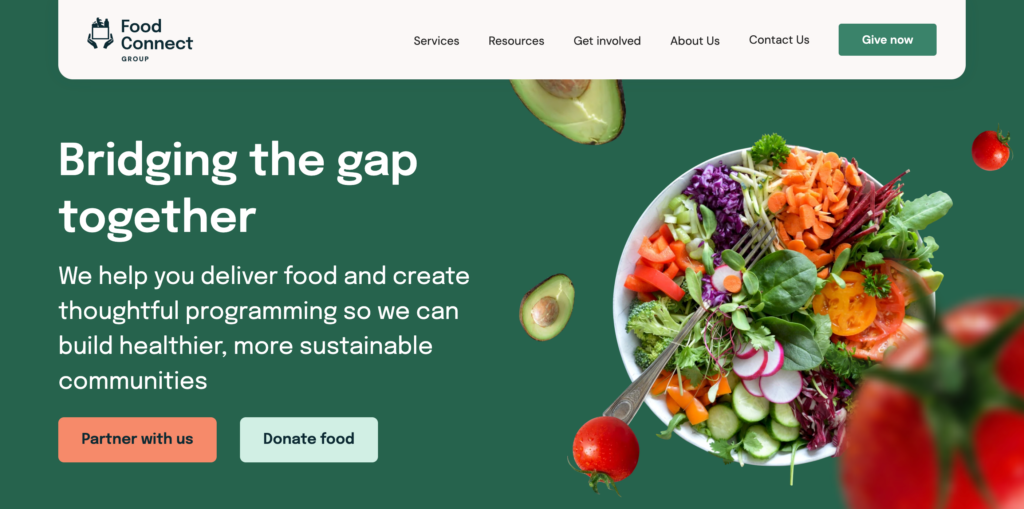Tech for Good is at the forefront of transforming our communities, blending innovation with compassion to address some of the most pressing social and economic challenges of our time.
There are a tremendous number of barriers to prosperity for children and families with low-incomes, in fact more than 40% of children experiencing poverty for an extended amount of time will repeat this pattern in adulthood.
Nonprofit organizations are a critical part of our ecosystem, helping to break down those barriers and providing support across a number of dimensions.
At the same time, technology is everywhere – within the phones in our pockets, embedded in our appliances, nested in our cars, and now we are seeing technology applied in a newer space: social impact.
GreenLight Fund runs an annual community-driven process in each of our 13 cities across the United States to break down barriers to economic and social mobility faced by residents navigating poverty.
The process starts with listening to the community to identify an area not yet being addressed where an evidence-based nonprofit program could make a real impact.
Once focus areas are identified, we search the country for proven nonprofits addressing the need effectively and then invest in scaling the solution with the best local fit to the community where it’s needed.
And we do that one issue at a time, year-after-year-after-year, in every city… changing many outcomes over time.
After nearly 20 years of this approach in communities across the country, as a national learning network, we’ve amassed a database of organizations along with their KPIs, which helps our model and the organizations we support continually improve and gives us a view into trends in the sector.
One new trend is unequivocally clear: we are seeing a dramatic uptick in nonprofits leveraging technology to address these challenging issues in a significant, scalable way.
My experience with GreenLight Fund combined with my own tech experience as an entrepreneur and active venture capitalist, brings me to share a perspective on five predictions for changes we will see in “Tech For Good” over the coming year.
Tech for Good Predictions
1. Tech entrepreneurs are entering the social impact industry
Advances in AI, shifting attitudes about what makes a meaningful difference, and a spotlight on successful models will help drive this change.
For example, Food Connect, a non-profit tech model based in Philadelphia that GreenLight has brought to the San Francisco Bay Area and Kansas City, bridges the gaps between food scarcity and families by providing the technology and logistics expertise to connect organizations who have food with families who need it.

In the San Francisco Bay Area, Food Connect, complementing the work of local nonprofit organizations, facilitated more than 438,000 deliveries last year alone to more than 71,000 families and is growing rapidly.
With experience in data and process solutions, Food Connect was founded by Megha Kulshreshtha who has dedicated her technical background towards streamlining inefficiencies in the hunger relief space.
2. Social impact tech leaders are focusing on place-based strategies
At GreenLight, five years ago, very few technology solutions emerged in our search to address unmet needs in our communities. In the past year, of the 10 selections we made in our community-driven process in cities, 40% of them were tech-platforms – Food Connect, mRelief, Inner Explorer, and Irth.
A place-based approach that builds trust and access is required even with a tech-based solution to ensure market adoption and impact.
For example, Inner Explorer, which we’ve brought to Atlanta and Charlotte, is an audio-guided mindfulness program designed to support the mental well-being and learning readiness of students in pre-K through high school.
In Atlanta, the program has been rolled out across Clayton Public Schools and youth partner programs reaching nearly 20,000 individuals last year.
In order to have an impact on communities and residents, tech solutions have to be distributed, adapted, adopted, and trusted locally through partnerships and community integration.
Simply making a solution available on the web or in an App Store is not enough.
Tech leaders are starting to realize that.
3. Large multinational companies will increase programs to assist tech-based social impact platforms
Companies like Deloitte, Okta, and Digital Ocean that we and our portfolio organizations work with will accelerate their pro bono offerings lending tech support to add value to the sector.
All of them (and an increasing number of peers) will broaden their free and discounted offerings to nonprofits as part of an increasing push towards improved corporate responsibility – driven by passionate team members and customers alike.
In addition, for-profit impact investing venture firms are starting to allocate a portion of their resources towards assisting and strengthening tech-based nonprofits.
4. More partnerships for enhanced personalization in AI-learning will emerge
Social entrepreneurs will follow the lead of the for-profit space and establish deep partnerships to leverage AI technology and the power of personalization.
Two major examples of this are Khan Academy, and Grammarly.

Khan Academy in partnership with OpenAI is piloting using GPT-4 to power Khanmigo, an AI-powered assistant that functions as both a virtual tutor for students and a classroom assistant for teachers.
Grammarly is using the GPT-3-derived API to deliver contextually aware generative AI writing assistance. Enhancing the personalization experience can dramatically provide improved learning and output, creating stronger results and impact.
5. Coverage of research-driven positive social impact stories will increase
We will see companies driving positive social impact initiatives recognized more frequently in the media.
As more and more tech entrepreneurs enter the social impact industry, news coverage will begin to lean more heavily into telling the stories of social impact driven by tech-based solutions.
This will not only accelerate growth and inspire more entrepreneurs to innovate, but it will motivate more philanthropic individuals and institutions to support social initiatives in a more impactful way.
The people-centered element of social support services is essential for impact, however technology can play a crucial role in helping services reach more people more efficiently and address challenges in new and innovative ways.
Done right with a local focus, these technology-based nonprofits have the opportunity to not only help individuals and families overcome barriers, but also change systems and outcomes dramatically for the better.
This will become more clear and exciting for social impact in 2024.









